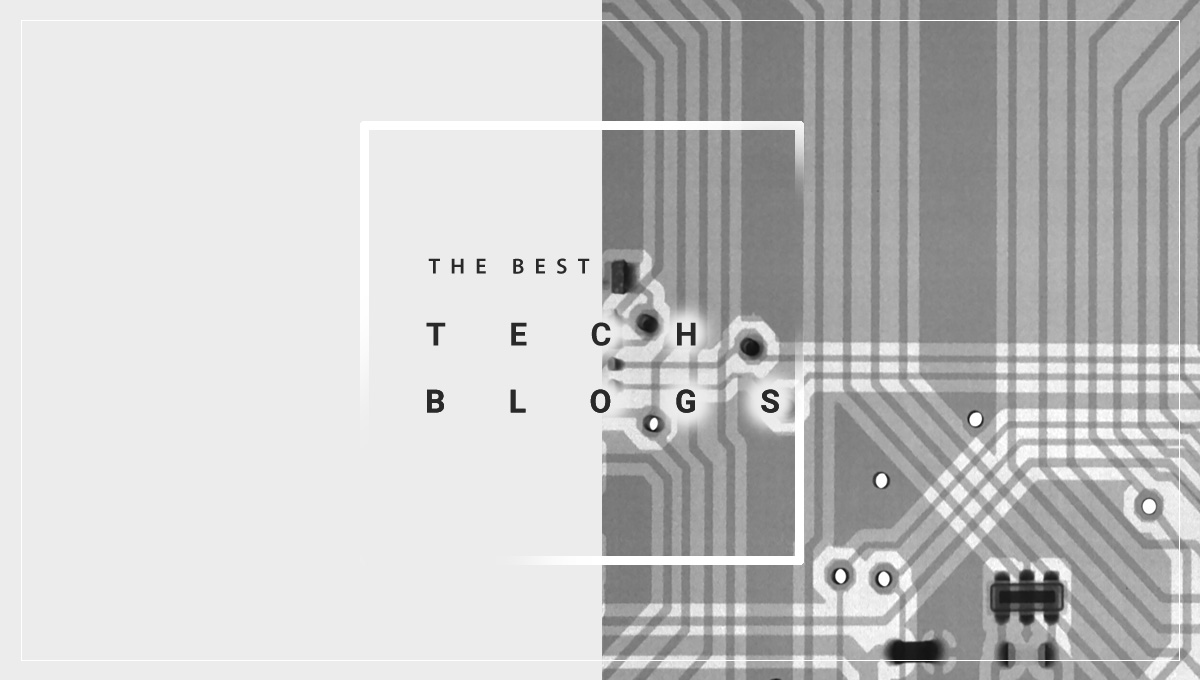Discover the Best tech blog for the Latest Trends and Technologies in Modern technology
Discover the Best tech blog for the Latest Trends and Technologies in Modern technology
Blog Article
How Blockchain Technology Is Revolutionizing Data Safety And Security
Blockchain modern technology is essentially modifying the landscape of data security by presenting a decentralized structure that guarantees boosted transparency and durability. Unlike standard systems, which depend on central data repositories, blockchain distributes information throughout a network, minimizing vulnerabilities and solitary factors of failure. Making use of sophisticated cryptographic techniques makes sure that data stays tamper-proof, cultivating trust fund amongst individuals and stakeholders. As markets rapidly adjust to this technology, questions emerge regarding its wider impact and prospective challenges. What implications does this shift hold for future information protection strategies and regulative structures? The answers might surprise you (Best tech blog).
The Essentials of Blockchain
Blockchain innovation, a cutting edge principle in electronic data administration, essentially changes exactly how information is kept and protected. At its core, a blockchain is a distributed ledger that tape-records transactions across a network of computers, making certain transparency and immutability.
Secret to understanding blockchain is the hashing procedure, which encrypts purchase data into an one-of-a-kind alphanumeric code. This cryptographic feature makes sure that any kind of modification in the transaction information leads to a completely different hash, consequently protecting versus meddling. The consensus device, another important element, confirms and validates brand-new deals via a network of nodes, thus eliminating the requirement for a central authority.
In addition, blockchain's append-only structure ensures that information, as soon as added, can not be removed or altered. This characteristic assurances a permanent and proven document of purchases, cultivating depend on amongst participants. As a result, blockchain supplies a durable framework for information integrity, offering markets a trustworthy method for monitoring and managing electronic info in a safe, clear fashion.
Decentralization and Security
Decentralization, a core concept of blockchain technology, dramatically enhances data safety and security by distributing control throughout a network instead than depending on a single, central entity. By distributing information throughout many nodes, blockchain makes certain that even if one node is compromised, the entire network continues to be protected.

Each participant in the network has accessibility to the entire blockchain, permitting them to verify and examine transactions separately. Overall, decentralization is crucial in improving information safety and security in blockchain networks.

Cryptographic Strategies
At the heart of blockchain technology, cryptographic methods play a crucial function in protecting information, making sure both confidentiality and stability. These strategies are foundational to the blockchain's capacity to securely videotape purchases in a decentralized manner. Cryptography in blockchain uses a combination of asymmetric and symmetrical algorithms to secure information, making it available just to accredited parties - Best tech blog. Public and exclusive vital sets are central to this procedure, enabling secure verification and identification verification without exposing delicate info.
Hash features are an additional important part, transforming input data into a fixed-size string of personalities, efficiently developing a distinct digital finger print for each block. This ensures that any type of attempt to modify the data will cause an entirely different hash, thus keeping the immutability of the blockchain. Additionally, electronic signatures verify the authenticity and integrity of purchases, offering a layer of non-repudiation.
The decentralized nature of blockchain, incorporated with durable cryptographic strategies, gets rid of the demand for intermediaries, decreasing possible vulnerabilities. As blockchain technology progresses, developments in cryptography such as zero-knowledge proofs and homomorphic file encryption remain to improve security actions, even more strengthening information security in this cutting edge digital ledger system.
Use Instances Throughout Industries

In the medical care industry, blockchain makes certain the safe and secure storage and sharing of client documents, promoting interoperability while guarding delicate data from unauthorized access. This innovation empowers people with control over their case history and helps with seamless control amongst medical care companies.
Supply chain monitoring advantages significantly from blockchain's unalterable ledger, which ensures traceability and credibility of items from beginning to customer. By improving openness, blockchain assists mitigate issues such find here as counterfeiting and dishonest sourcing.
Furthermore, blockchain's decentralized nature is reshaping the energy sector by making it possible for peer-to-peer energy trading, where customers can deal excess renewable resource directly. This promotes a more efficient and lasting energy ecological community.
In the realm of copyright, blockchain offers a tamper-proof platform for developers to register and secure their jobs, ensuring rightful attribution and reasonable payment. These diverse usage instances highlight blockchain's role as a critical force in redefining data protection throughout sectors.
Future of Data Defense
As we want to the future of information protection, blockchain modern technology is poised to play a pivotal duty in safeguarding electronic details. With its decentralized recommended you read and unalterable characteristics, blockchain provides a durable structure for safeguarding sensitive data against unauthorized accessibility and cyber risks. This modern technology makes certain that once data is recorded, it is virtually impossible to modify without discovery, thus supplying a considerable advantage over conventional data storage space methods.
The integration of blockchain with various other advanced innovations, such as artificial knowledge and the Internet of Points (IoT), is anticipated to improve information protection strategies better. By leveraging smart contracts, organizations can apply and automate protection methods, decreasing human error and raising efficiency. Additionally, blockchain's capability to supply transparent and deducible purchases will reinforce count on and liability in information management practices.
As regulative landscapes progress, blockchain's compliance-friendly nature will certainly come to be significantly appropriate. It can aid organizations fulfill rigid information defense guidelines, such as the General Information Protection Regulation (GDPR) and the California Consumer Privacy Act (CCPA), by offering proven documents of information processing activities. Ultimately, blockchain's special attributes placement it as a transformative tool in the recurring mission to secure the electronic world against ever-evolving cyber dangers.
Final Thought
Blockchain more information modern technology represents a paradigm shift in information safety and security by leveraging decentralization and cryptographic techniques to enhance transparency, count on, and data honesty. As cyber threats evolve, blockchain emerges as a vital tool for robust data security throughout different markets.
Blockchain innovation is fundamentally altering the landscape of data security by introducing a decentralized framework that assures improved transparency and durability. Unlike typical systems, which depend on central information databases, blockchain disperses information across a network, reducing vulnerabilities and single factors of failing.Decentralization, a core concept of blockchain modern technology, substantially improves information safety and security by distributing control throughout a network instead than relying on a single, centralized entity.At the heart of blockchain technology, cryptographic strategies play a pivotal duty in securing information, ensuring both privacy and integrity.Blockchain modern technology represents a paradigm change in data safety by leveraging decentralization and cryptographic strategies to improve openness, depend on, and information integrity.
Report this page